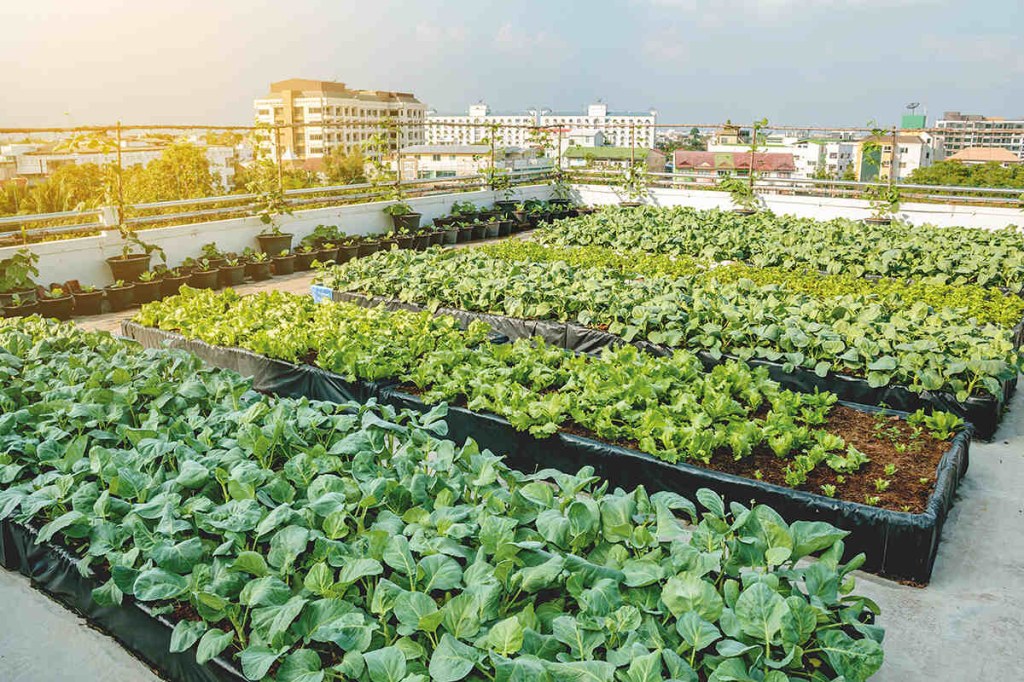Transforming Cities With Urban Farming UK: Unleashing Sustainable Opportunities
Urban Farming UK: Cultivating a Sustainable Future
Introduction
Dear Readers,
2 Picture Gallery: Transforming Cities With Urban Farming UK: Unleashing Sustainable Opportunities


Welcome to this informative article on urban farming in the United Kingdom. In recent years, there has been a growing interest in sustainable agriculture practices, and urban farming has emerged as a viable solution to address food security and promote environmental sustainability. In this article, we will explore the concept of urban farming, its benefits, and its potential impact on the UK’s food system. Join us as we delve into this exciting and forward-thinking agricultural movement.
Overview of Urban Farming UK

Image Source: wired.co.uk
Urban farming, also known as urban agriculture, refers to the practice of cultivating crops, raising livestock, or rearing fish within urban environments. In the UK, urban farming has gained momentum as a means to reduce the carbon footprint associated with long-distance food transportation, increase access to fresh and nutritious produce in cities, and foster community engagement. This innovative approach to farming utilizes vacant land, rooftops, and even indoor spaces to create sustainable food production systems.
What is Urban Farming UK? 🌱
Urban farming in the UK involves the cultivation of crops and the raising of animals in urban settings, such as cities and towns. It utilizes various techniques such as vertical farming, container gardening, and aquaponics to maximize limited space and resources. By integrating technology and sustainable practices, urban farmers are transforming unused spaces into productive agricultural areas.
Who is Involved in Urban Farming UK? 🚜
Urban farming in the UK engages a diverse range of individuals and organizations, including local communities, businesses, educational institutions, and government agencies. Community gardens, rooftop farms, and social enterprises are just a few examples of the initiatives driving the urban farming movement. These collaborations foster knowledge sharing, skill development, and social cohesion among participants.
When Did Urban Farming UK Begin? ⏳

Image Source: geographical.co.uk
While urban farming has a rich history dating back to ancient civilizations, its resurgence in the UK gained momentum in the early 21st century. The need to address climate change, food insecurity, and the desire for a more sustainable food system prompted individuals and organizations to explore alternative farming methods. Today, urban farming initiatives can be found in cities across the UK, contributing to a greener and more resilient future.
Where Can You Find Urban Farms in the UK? 📍
Urban farms can be found throughout the UK, transforming unused spaces into vibrant and productive agricultural hubs. From community gardens nestled in residential areas to commercial rooftop farms in city centers, urban farming initiatives are flourishing. These projects not only provide fresh produce but also create green spaces that enhance the quality of urban life.
Why Choose Urban Farming UK? 🌍
Urban farming in the UK offers numerous benefits that make it an attractive option for individuals and communities. Firstly, it reduces the environmental impact associated with conventional agriculture by minimizing transportation distances and pesticide usage. Secondly, it increases access to fresh and nutritious produce, especially in areas with limited grocery store access. Lastly, urban farming promotes education, community engagement, and food sovereignty, empowering individuals to take control of their food system.
How Does Urban Farming UK Work? 🏭
Urban farming in the UK employs a range of techniques and technologies to optimize food production in urban environments. Vertical farming, for example, utilizes stacked trays or shelves to grow crops indoors with controlled lighting, temperature, and nutrient levels. Aquaponics combines fish farming with hydroponics, creating a symbiotic system where fish waste provides nutrients for plants. These innovative methods enable year-round production and maximize yield in limited spaces.
Advantages and Disadvantages of Urban Farming UK
Advantages:
Increased access to fresh, locally grown produce.
Reduced carbon footprint through decreased food transportation distances.
Opportunities for community engagement and education.
Utilization of underutilized urban spaces.
Promotion of biodiversity and urban green spaces.
Disadvantages:
Dependence on limited space and resources.
Potential challenges in scaling up production to meet demand.
Higher upfront costs for infrastructure and equipment.
Reliance on proper waste management and water conservation practices.
Potential conflicts with zoning and land-use regulations.
Frequently Asked Questions (FAQs) about Urban Farming UK
1. Is urban farming only for city dwellers?
No, urban farming can be practiced in both urban and rural areas. However, its focus on utilizing limited space in cities makes it particularly relevant for urban environments.
2. How can I get involved in urban farming in the UK?
There are many ways to get involved, such as volunteering at a community garden, attending workshops on urban farming, or starting your own small-scale urban farm. Research local initiatives and reach out to like-minded individuals or organizations for guidance.
3. Can urban farming really make a difference in addressing food security?
Yes, urban farming has the potential to increase food security by providing fresh produce in areas with limited access to grocery stores. By promoting local food production, it reduces reliance on long-distance transportation and contributes to a more resilient food system.
4. Are there any government incentives or support for urban farming in the UK?
Yes, the UK government has implemented various initiatives to support urban farming, such as grants for community projects, tax incentives for businesses, and policies promoting sustainable agriculture practices. Stay updated with the latest government programs and funding opportunities in your area.
5. Can urban farming be profitable?
While profitability can vary depending on factors such as scale, location, and market demand, urban farming has the potential to generate income through direct sales to consumers, restaurants, and farmers markets. Business models that incorporate value-added products or specialized crops can enhance profitability.
Conclusion: Cultivate Change, Embrace Urban Farming
Urban farming in the UK represents a transformative approach to agriculture, bringing food production closer to where people live and work. By utilizing innovative techniques and engaging local communities, urban farming has the potential to revolutionize the way we grow and consume food. Embrace this sustainable movement, support local urban farming initiatives, and take small steps towards a greener, healthier future.
Final Remarks
In conclusion, urban farming in the UK offers a promising solution to the challenges faced by conventional agriculture. It enables individuals and communities to actively contribute to a more sustainable food system while fostering social connections and environmental stewardship. However, it is important to recognize that urban farming is not a one-size-fits-all solution and may face challenges in certain contexts. Careful planning, collaboration, and ongoing support are essential to ensure the long-term success and viability of urban farming initiatives. Let us embrace the potential of urban farming and work together to cultivate a brighter future.
This post topic: Gardens



